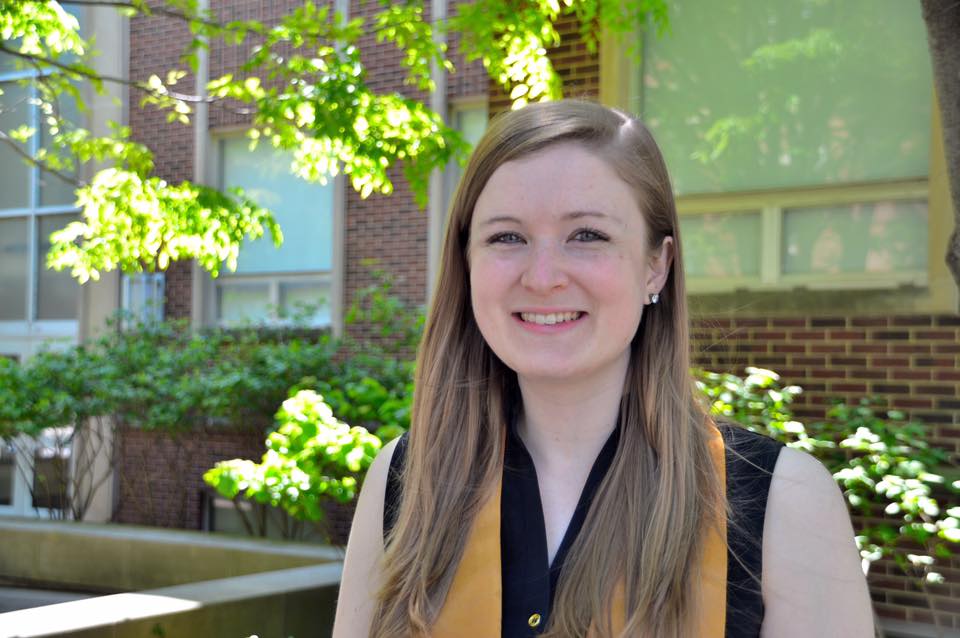
Article courtesy of Graduate Programs & Services at the University of Wisconsin-Madison
Using new technology to innovate lesson plans. Reducing anonymity in the classroom to engender a sense of community. Carrying greenhouse plants across campus so students can actually feel the leaves and smell the flowers. Facilitating programs designed to better meet the needs of young children experiencing homelessness. These are just some of the innumerable ways the 2021 Campus-Wide Teaching Assistant Award winners have made a positive impact at the University of Wisconsin–Madison and beyond.
UW–Madison employs over 2,100 teaching assistants (TAs) across its 200-plus undergraduate major and certificate programs. Whether teaching in lecture halls, classrooms, and labs on campus or leading learning opportunities in the wider community, their work is vital to fulfilling the university’s educational mission and the Wisconsin Idea. To recognize the excellence of TAs at UW–Madison, the Graduate School supports the College of Letters & Science (L&S) in administering these awards.
TAs are honored across six categories including a new award this year, the Excellence in Community-based Learning Teaching Award. This category recognizes TAs who have demonstrated outstanding instruction using a community-based learning approach.
Please join in celebrating the following winners of the 2021 Campus-Wide TA Awards. Learn more about each awardee in the bios below.
Dorothy Powelson Teaching Assistant Award Winners
MaryGrace Erickson

MaryGrace is pursuing a PhD in Animal & Dairy Sciences. In addition to researching protein and nitrogen metabolism in lactating dairy cows, MaryGrace is interested in educational psychology and discipline-based educational research — more specifically, the development of critical constructivist science teaching modalities and assessment methods.
While at UW, MaryGrace has been a laboratory instructor for Animal Science 101: Introduction to Animal Sciences and served as a TA in multiple Dairy Science courses.
“When I began my teaching assistantship at UW, I was refreshed to find a community who shared a similar goal as I do,” said MaryGrace. “I want to teach in a way that invites participation, welcomes diversity, and illustrates science as dynamic and socially-embedded. As a humanist, I believe that people have a natural tendency to self-actualize and seek meaningful learning. When learners’ motivation is lacking, this is often the result of cultural, structural, or contextual barriers to engagement. As a cognitive constructivist, part of my teaching practice involves identifying and overcoming conceptual hurdles and interleaving natural sciences habits of thinking into existing cognitive schema. In practice, I maintain high expectations for students, communicate learning outcomes clearly, offer low-stakes assessments with volumes of personalized feedback and support, and open multiple modes of student-to-teacher communication/listening.”
MaryGrace also credits engagement in discipline-based educational research as a wellspring of inspiration for her teaching practice. “I am first and foremost a scientist — I believe that excellent teaching is evidence-based teaching.” MaryGrace’s research prompted numerous developments in her own teaching practice, specifically integrating activities with hands-on and tactile elements, revising course materials to ultimately expand students’ consciousness of the natural world, inviting students to reflect on the practical and personal meanings of scientific topics, and encouraging learners to take on the identity of scientist.
Jorge Antonio De Los Santos Funes

Jorge is a PhD student in the Department of Animal & Dairy Sciences. He studies the biology of reproductive physiology, particularly how early stage maternal–fetal communication occurs on a molecular level.
During his career at UW, Jorge has taught for classes such as Equine Reproductive Management, Neurobiology, and WISCIENCE Summer First Experience. Jorge especially enjoys inspiring first-generation students and helping people develop critical thinking skills while introducing them to introductory biology concepts. For these reasons, he loves being an instructor in biology labs, where he can “teach by doing.” In this hands-on environment, Jorge encourages students to feel free to ask questions and make mistakes.
“We learn from mistakes and other classmates’ ideas,” said Jorge. “I believe science is a team effort and I like to celebrate this.”
To establish this team mentality, Jorge said his teaching philosophy is simple. “I encourage students in three aspects: one, establish a welcoming and open learning environment; two, apply pre-existing knowledge, to resolve problems independently; and three, ask for help or share what they have learned. We revise this process multiple times in the lab in order to develop critical thinking. I also give students freedom and responsibility at the same time so they can bring their own ideas, set up their own experiments, obtain the data, and draw conclusions.”
Jorge developed this teaching philosophy through his teaching experiences and by taking classes in the Delta Program in the Graduate School. Additionally, he reaches out to colleagues and his academic advisor to exchange ideas related to teaching concerns. He appreciates this mentorship and hopes to pay it forward. “I have been teaching for many years, and I always find it rewarding when former students ask for a reference letter,” he said.
